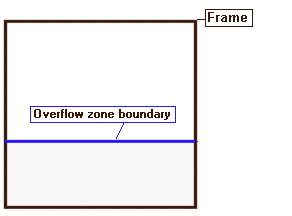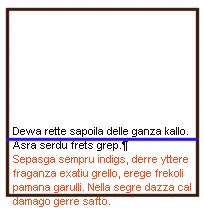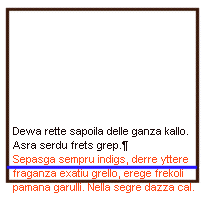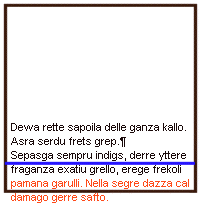When you select the page break mode Break between lines in a field, you also enable the property Overflow zone boundary.

The window between the Overflow zone boundary and the bottom of the frame determines how many lines to move to the next page, and prevents the StreamServer from generating widow and orphan lines in the output.
If you want to break between lines in a field between different page types, you must select the Suppress frame overflow zone synchronization option on the page type where the text overflows to, see Page Setup dialog box.
|
1
|
In the Process view, right-click the frame and select Frame Properties. The Frame Properties dialog opens.
|
|
2
|
In the Overflow zone boundary field, specify the distance (in grid units) from the top of the frame. You can also use a variable to determine the distance.
|
|
Example 8
|
A paragraph contains three lines and generates an overflow. The paragraph does not begin below the Overflow zone boundary.

|
Example 9
|
A paragraph contains four lines and generates an overflow. The paragraph does not begin below the Overflow zone boundary.

The two last lines (red text) are moved to the next page, i.e. there will be at least two lines on each page.



